Below is a Viewpoint from Chapter 6 of the Foresight Africa 2021 report, which explores top priorities for the region in the coming year. This year’s issue focuses on strategies for Africa to confront the twin health and economic crises created by the COVID-19 pandemic and emerge stronger than ever. Read the full chapter on good governance.
 The most recent release of the Ibrahim Index of African Governance (IIAG) indicates that, while progress has been made in overall governance performance on the continent over the last decade—as of 2019, over 6 in 10 of Africa’s citizens live in a country where governance is better than in 2010—this progress has slowed down in the latter half of the decade. Indeed, in 2019, average year-on-year governance performance fell for the first time since 2010.
The most recent release of the Ibrahim Index of African Governance (IIAG) indicates that, while progress has been made in overall governance performance on the continent over the last decade—as of 2019, over 6 in 10 of Africa’s citizens live in a country where governance is better than in 2010—this progress has slowed down in the latter half of the decade. Indeed, in 2019, average year-on-year governance performance fell for the first time since 2010.
We’ve witnessed not a huge drop—barely 0.2 points—but that decline is a warning sign that needs to be monitored and addressed. Undeniable gains in human and economic development have been achieved. But they are not able to offset deteriorating performances, often at a worsening pace, regarding security, rule of law, participation, rights, and inclusion. This reality underscores a deeper truth: There can be no sustainable trade-off between progress in human and economic development and disdain for citizen participation, rights, rule of law, and transparency.
Africa’s citizens are increasingly dissatisfied
Because citizens must be at the heart of governance, the 2020 IIAG includes a new section—Citizens’ Voices—mirroring the main IIAG results around citizens’ perspectives (from a sample of citizens in 39 countries representing around 87 percent of Africa’s population). In more than half of the 39 countries sampled, citizens are less satisfied with governance performance than 10 years ago. Moreover, this dissatisfaction has been worsening since 2015, reaching its lowest level since 2010 last year. Given that over 60 percent of Africa’s population is under 25, attention must be paid to this growing mistrust, as mistrust from youth could easily turn to frustration and anger.
COVID-19 risks reversing the positive gains, but is also a key opportunity to reset current models
COVID-19 is set to exacerbate governance’s existing challenges and reverse positive gains achieved. Even if the virus only mildly hits Africa’s population, the continent’s still-weak health systems are already overstretched. The number of out-of-school children has risen alarmingly. Postponed elections and excessive lockdown measures have further deteriorated the democratic and rights landscape as well as civil society space. But the most concerning impact of COVID-19 for Africa is economic and social, with recession predicted in Africa for the first time over the last 25 years. Such an event could threaten to reverse the gains obtained over the last decade in economic and human development, which up to now had been the main drivers of overall progress on the IIAG as governments have gained greater ability to provide public goods and services to their people.
However, history has taught us that no momentous change has ever taken place without being triggered or forced by a major crisis. So maybe COVID-19 presents us with the opportunity to re-think, rather than merely re-build, a new growth model—one that is more sustainable, more resilient, more job-creating, and more inclusive.
The Brookings Institution is committed to quality, independence, and impact.
We are supported by a diverse array of funders. In line with our values and policies, each Brookings publication represents the sole views of its author(s).

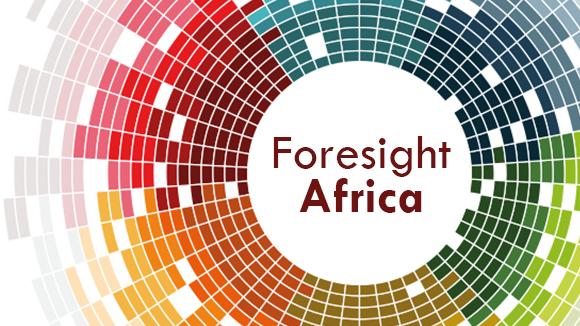

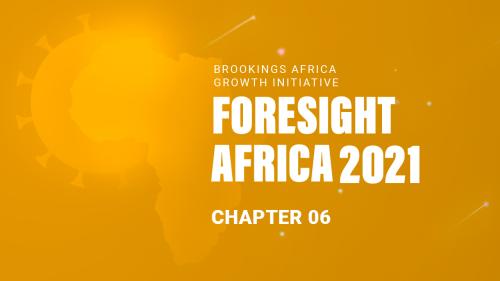
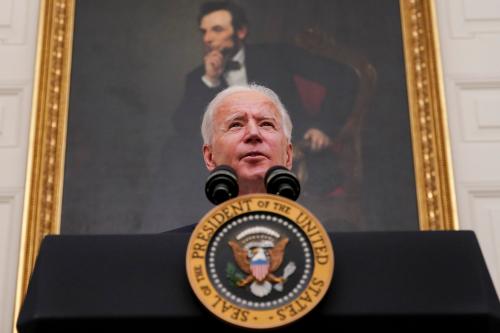
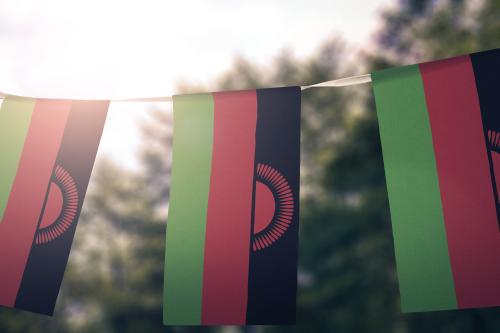


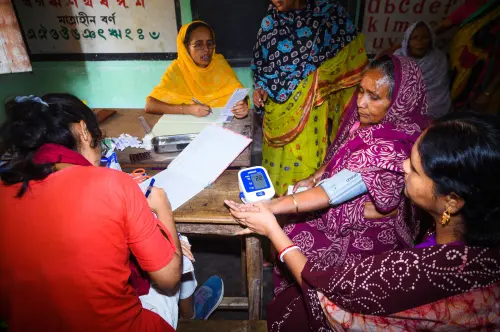

Commentary
Governance in Africa: Citizen dissatisfaction is growing, and COVID-19 is likely to reverse recent gains
February 25, 2021